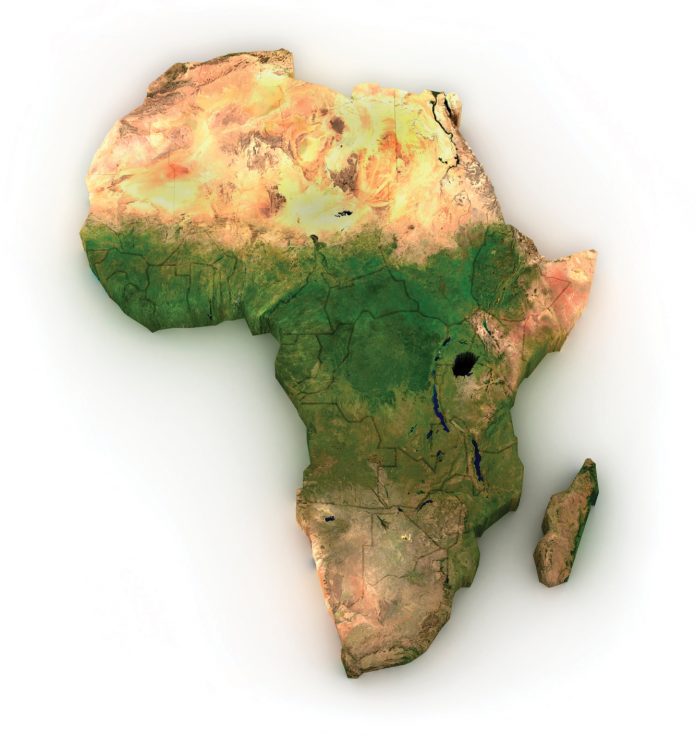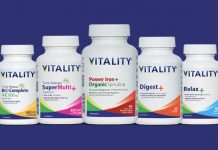Flash Beauté Inc. works closely with women in remote African villages to bring beauty products to Canadians
By Carol Crenna
As a pioneer in organic beauty products in 1998, he encountered what many of us would consider insurmountable obstacles to certify ingredients grown in rural Africa.Although many customers give organic labels little more than a glance, simply expecting the certification on health store products, Jerome Vignols, founder of Flash Beauté Inc., experienced the challenges of achieving this accomplishment.
Vignols states, “Obtaining certification for shea butter in 2003 was an achievement. In remote villages, women were mostly illiterate, which made management requirements and paperwork very difficult. It took two years of sending trainees thousands of kilometres to implement high standards and educate women on the difference between an organic and a conventional product.”
Launching Kariderm
His company developed a close relationship with a women’s cooperative in Burkina Faso, West Africa, and introduced the world’s first certified organic shea butter under the Kariderm brand. Fair trade certification followed soon afterward. The company sells only pure, unrefined shea butter, extracted without solvents, to retain its nutrients. Most production is still done by hand; the only exception is mechanical filters that remove impurities.
From its beginnings as a small specialty importer, Flash Beauté Inc. has now become a manufacturer and distributor of a complete range of beauty products. Thirty different 100 per cent natural shea butter products for body, face and hair care are sold across Canada through health retailers, with additional importers in Europe and Korea.
Why shea butter?
Although it had gained popularity in France, where Vignols originally lived, shea butter was not known in Canada. “I met the president of a cooperative in Africa where it has been produced as a traditional product for centuries. I recognized that it was an opportunity for business and to introduce Canadians to shea’s many benefits,” explains Vignols. (L’Occitane had previously introduced shea butter in Quebec.)
Deciphering quality
Today several brands sell shea butter, but according to Vignols, they don’t offer what Kariderm does. Quality varies from country to country, affected by production methods. The key is to retain strict, consistent selection of nuts. Oil quality can be identified by colour and scent greyish or greenish, rather than pale cream, and stronger smell, instead of a very light scent, denotes lesser grades. “Sometimes producers buy the cheapest nuts in bulk and then process them in not the best conditions so the products acquire a stronger smell or become rancid,” he says. Kariderm doesn’t add or remove anything including fragrance.
Launching African Essentials
Although Flash Beauté has expanded to other ingredients, it sticks to basics: selling only natural products that are easy to use and easy to understand. Consumers are increasingly seeking good natural beauty products for daily care, and pay much attention to validating the story behind them, according to Vignols.
Specializing in raw materials lesser known in Canada, Flash Beauté Inc. duplicated the partnership established in Burkina Faso this time in rural Morocco. There it produces high-altitude, unrefined argan oil under the label African Essentials. It will expand to a full line of argan based hair and skin care products. Again, Vignols partnered with rural women producers to obtain ECOCERT organic and fair trade certification.
Argan oil is not new to the West, but other brands have yet to be certified organic and fair trade. African Essentials Argan Oil actually got a boost from other brands; due to the popularity of Moroccan Oil, consumers began seeking out products containing the pure oil, not found as just one ingredient in a processed formula with additives.
High altitude argan oil is produced in a small village in the mountains in limited quantities. It is very isolated; people retain their original culture with few modern conveniences. “There are no roads, only rocky pathways, which makes transportation difficult, resulting in costly imports,” admits Vignols, who has visited the community. Since African Essentials just launched, it currently just sells across Ontario and Quebec.
What is argan oil?
African Essentials Argan Oil is produced from selected raw argan nuts extracted from dried fallen fruits. This differs from some producers that gather all nuts found on the ground, which often come from goats that ingested the fruit whole, thus generating a lower grade “goat’s oil.”
Argania spinosa trees are now government-protected, making it unlawful to cut them down for wood, and they’re monitored for goats that climb the trees to eat the fruit, often destroying blossoms for the next year’s fruit. “Villagers now pay attention because it has become one of the area’s few resources. There is cattle breeding, but since it is so dry, they have very little agriculture,” explains Vignols.
Shea butter vs. argan oil?
Consumer feedback for both oils is positive. Vignols says people with extreme eczema conditions have found great relief with shea butter. “We launched it during winter to protect against harsh weather, and then suddenly sales picked up during summer months, too. Customers like it year-round, especially in dry climates like Alberta.”
Argan oil works well on hair, but it also gives surprising results on skin because it is very quickly absorbed. Whereas shea butter is a little heavier, and is used for very dry facial skin or body care, argan oil is exceptional for all facial skin types. Shea butter is absorbed at a deeper level, making it therapeutic for eczema and psoriasis, yet argan oil offers immediate surface results.
New ingredients
In future Flash Beaute will be developing other African-sourced beauty products with unique traditional ingredients under the African Essentials brand. They will include black cumin oil and baobab oil. “We will keep them pure, simple and very effective,” concludes Vignols. “And if we continue to sell the best possible products to consumers, we will also impact the communities involved in making them.”









